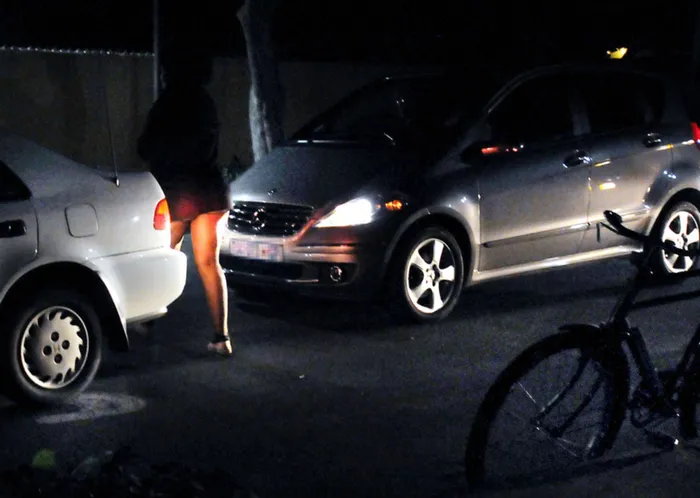Trafficking on the up, say NGOs

210510 Prostitute walking between two cars On Oxford road near Sandton are saying the are really ready for the World cup. Picture: Ziphozonke Lushaba 210510 Prostitute walking between two cars On Oxford road near Sandton are saying the are really ready for the World cup. Picture: Ziphozonke Lushaba
The scourge of child, especially girl child, and woman trafficking is on the increase in SA, although there are no statistics to back this up.
But the growing number of children and women found to be sex slaves being rescued by the police and NGOs bears testimony to the increase in kidnapping incidents linked to sex slavery and prostitution.
Women and girls from poverty-stricken communities are lured by offers of jobs, including modelling careers, only to find themselves kidnapped, drugged and kept as sex slaves in sleazy dens far away from their homes and villages.
Although the police and NGOs go out on a limb to find and rescue abducted children and adults, it often difficult to prosecute the culprits in such cases, as SA has no legislation that deals specifically with human trafficking.
The other difficulty is that more often than not, the rescued girls disappear or go back to prostitution or their pimps, making it almost impossible to find those responsible for this heinous crime against women and children.
The question of when the Prevention and Combating of Trafficking in Persons Bill will be signed into law is still up in the air.
“You’re not going to get that answer from any organisation because no one knows yet,” said Melanie Hamman, who heads up Media Monitoring Africa’s child protection and trafficking programme.
“We’re not alone in trying to get our head wrapped around the issue,” she said.
“Right now for most of the organisations we work with, it’s a ‘wait-and-see’.”
Patrick Solomons, the director of registered child-rights organisation Molo Songololo in Cape Town, agreed.
“It’s a long process. There are still lots of gaps. We’ve been involved in the drafting of the bill since 2002, and because it’s very comprehensive, it’s still in Parliament at the moment.
“We’re hoping that Parliament will finalise its process and sign the bill into law, so that we can begin to implement this piece of legislation and combat human trafficking. It will provide us with an effective means against human-rights violation,” said Solomons.
“Trafficking in persons is a complex crime. It’s not easy to identify and investigate, because of its underground nature. There’s a lot of deceit. Victims are reluctant to come forward because of intimidation and threats, because of the involvement of criminal groupings and syndicates,” he added.
“It is complex in the same way that Parliament is struggling with the scope of provision, particularly with government’s obligations in providing for service for victims … And the jurisdiction of different ministries in government in relation to the bill,” said Solomons.
“At this stage it’s the furthest it has ever got in my opinion,” said Hamman.
“The recent update we’ve had on it is that there have been various changes which suggest that they’re fine-tuning it.
“We have been told that it’s in its due-diligence stage. It may take two months or six. But it’s in its final steps and we’re ready for it to be passed,” she added.
Statistics on the current state of human-trafficking in SA are scant. Solomons said it was a struggle to get a full picture of human-trafficking in the country.
“We don’t know yet how big the problem is and we’re unable to record exactly the state of human-trafficking because most cases don’t always present themselves as such. And when it’s identified, sometimes it presents as something different,” he said. “However, since the release of Molo Songololo’s first report 12 years ago on trafficking in children for purposes of sexual exploitation, there has been an increase in the numbers of reporting and investigations by the police.”
There has also been an increase in cases appearing in court and being prosecuted, explained Solomons. “And there has been an increase in sentencing in the last two years.”
The Star